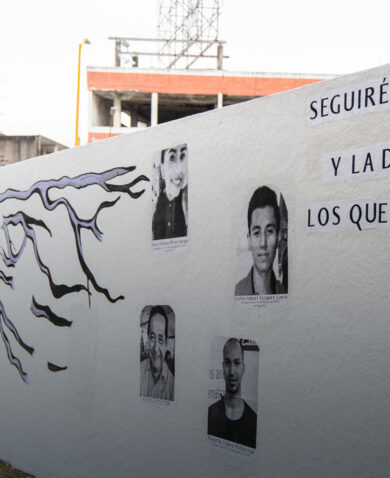
Chemonics News
News: Investing in Applied Research for Sustainable Impact in Development
April 20, 2023 | 2 Minute ReadThrough recently launched research awards, we are tackling key issues within development to improve performance, enhance accountability, and share lessons with the broader community.
Chemonics is proud to launch the inaugural Evidence and Learning for Scale Research Awards, a competitive process in which we sought out research proposals from 88 of our donor-funded projects around the world to help address critical cross-sectoral topics.
For 2023, we selected two winning proposals aligned with the priority topic of social behavior change — a transformative process that determines why people do or do not adopt certain behaviors so they can overcome barriers and improve their lives. Social behavior change is key to addressing many development issues across every technical sector, and we aim to increase our evidence base on this important topic through these research awards. Each winner will receive $25,000 to undertake a nine-month research study using transparent and methodologically sound designs that will produce valid and reliable results that contribute to the evidence base on their proposed topics.
These awards represent a strategic investment to strengthen our commitment to evidence-informed proposal design and project implementation and reflect our commitment to continual learning. “Through the research awards, Chemonics is taking concrete steps to address our learning priorities in alignment with those of USAID and our other clients. These applied research studies have incredible potential to advance the evidence base on behavior change approaches, to benefit development practitioners globally, and — most importantly — to improve the quality of the support we provide to those communities with whom we work,” says Chemonics’ Senior Advisor for Applied Research Jennifer Simpson.
Read more about the winning proposals below and stay tuned for the findings.
- Behavioral Change that Facilitates People-Centered Justice: An Empirical Study in Colombia. As the follow-on to the four-year USAID/Colombia Justice for a Sustainable Peace Activity, the Inclusive Justice Activity engages a people-centered approach to justice, operating on the hypothesis that the activity contributes to behavior change of citizens and their local systems, their adoption of people-centered justice, and their trust in justice institutions. This study seeks to establish what actions have contributed to changes in behavior that facilitate an effective application of people-centered justice. The lessons learned from this process can allow local systems, including justice policymakers in the Colombian government, to continue to strengthen strategies to improve access to justice for the general population and specifically for the most vulnerable sectors of society. The significance of this approach lies in pioneering the systematic application of behavioral sciences to access to justice issues, providing lessons and inspiration for other governance programs around the world.
- Pathways for Locally Led Cooperation and Collective Action in Iraq: the DCEO/Tahfeez Community Engagement Process. The USAID/Iraq Durable Communities and Economic Opportunities (DCEO/Tahfeez) project aims to improve community resilience against destabilizing factors in Iraq by promoting economic well-being and community cohesion. The project hypothesizes that violent conflict will be reduced through a community engagement process that builds trust among diverse community groups, who will collaborate to identify conflict solutions and collectively take action to implement them. This study asks, do community dialogues developed and implemented by the DCEO/Tahfeez project build trust across diverse community groups, and, if so, do they lead to increased collaboration and collective action within communities in Ninewa, Iraq? This study contributes to the literature on community dialogue and engagement processes for collective action in Iraq, notably post-ISIS Iraq, as well as post-conflict contexts, and aligns with USAID’s global learning agenda priority of locally led development.
























